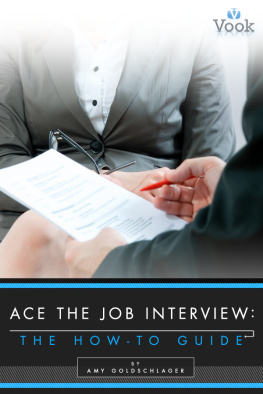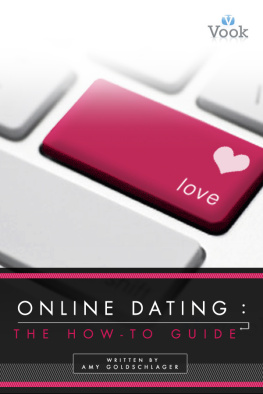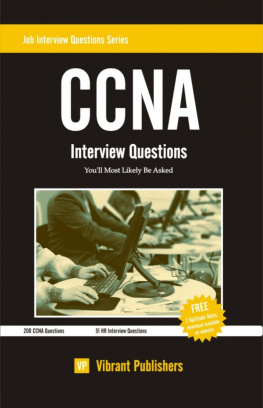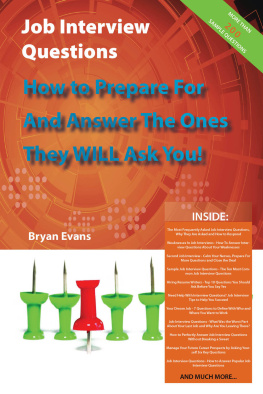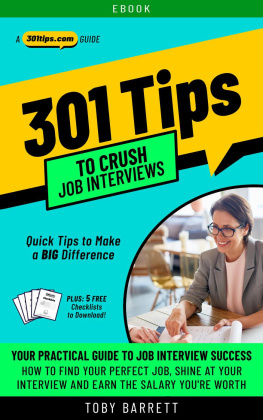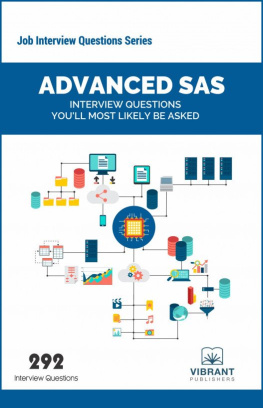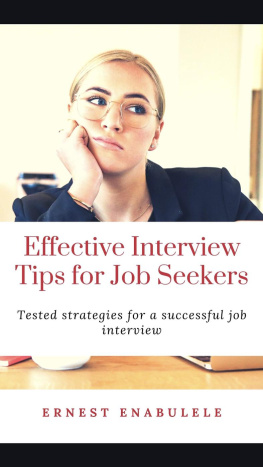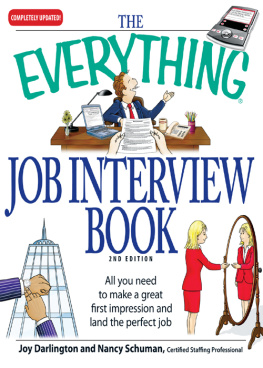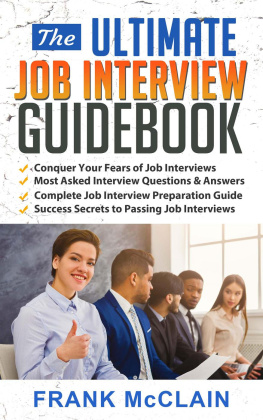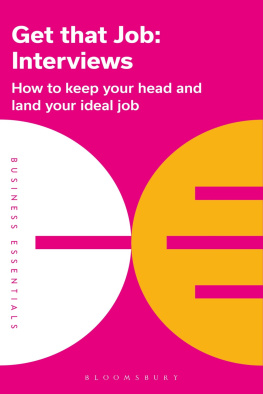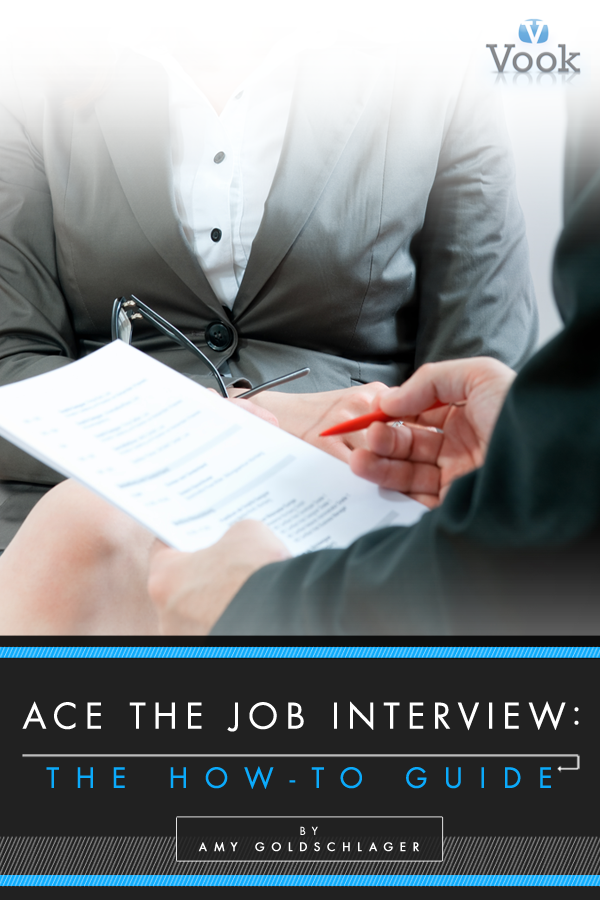Credits & Copyright
Author Profile:
Amy Goldschlager - Amy Goldschlager is a NYC-based editor, writer, and book/audiobook reviewer. Her undergraduate thesis was about social interaction on the Internet; since this was in the early 1990s, she had a hard time convincing anyone that it was an important topic. Obviously, the rest of the world eventually caught up. Ms. Goldschlager has worked for several major publishers, including Penguin and Scholastic. She has also written for Publishers Weekly, Kirkus, and AudioFile magazine, as well as the sites finding Dulcinea and ComicMix.
Web Links:
- Author's Website
- Author's Facebook
Ace the Job Interview: The How-To Guide
by Amy Goldschlager
There are only two things standing in the way of you and your dream job: your competition and The Interview. Wow potential future employers with poise and preparation - download Ace the Job Interview: The How-To Guide now. This guide features interactive expert interview tips, preparing you to tackle every aspect of a job interview and stand head and shoulders above the rest.With this Vook youll learn effective, proven strategies for acing your job interviews, from screening to the post interview waiting phase. Youll learn how to get your cover letter and resume noticed by potential employers and what to research about the company and opportunity. Youll also learn how to impress and advance past the phone interview, predict and answer questions in advance, and make the best impression beginning with your entrance. Finally, youll explore ways to find common ground with your potential boss, handle multiple interviewers, and get through the sometimes stressful post-interview phase. Insider tips throughout provide added dimension to this interactive guide.
Copyright 2011 Vook, Inc.
Compilation copyright 2011 Vook, Inc.
Vook is a registered trademark of Vook, Inc.
Chapter 1
Introducing Your Interview
I n a tough economy, employers often have the luxury of choosing from dozens of candidates with roughly similar skills. Youre a tree in a vast forest: Your personality may be sterling and your professional qualifications stellar, but if you cant draw your potential employers attention to them, you might as well have never applied. The interview is your best possible chance to make yourself stand out. With the tips in this guide, youll not only burnish your image to its highest possible gloss, youll use it to dazzle everyone in the office.
The key to acing your interview is to follow the Boy Scout motto: Be Prepared. The more you know about the interview process, the employer, the supervisor, and your own qualifications and how best to spotlight them, the better youll come across.
In this guide, well cover the elements crucial to becoming the number-one candidate for the position, including:
- Getting your cover letter and resume to the top of the pile
- Doing the research
- Conducting the perfect phone interview
- Predicting and answering interview questions in advance
- Making the best possible impression from the moment you step into reception
- Forging a connection with your potential boss
- Facing multiple interviewers for the same job
- Making it through the difficult post-interview period
Good luck!
TIP
If youre thinking of switching jobs or careers, go on informational interviews. In addition to garnering you valuable information and collecting important contacts, theyll help you become comfortable with the interview process when theres less at stake.
Chapter 2
Screening Process Success
T he first step in acing the interview is getting called in for that interview; that means crafting a superb resume and catchy cover letter.
The Resume and Cover Letter
- Look at sample resumes online; determine what format is best for you. If youve worked for a number of well-known employers and you can demonstrate a clear rise in responsibility from job to job, you may want an experience-based resume. If youve held positions in a variety of areas, and your trajectory is less clear, you may want a skills-based resume.
- Keep it short; one page if possible, two max, unless your industry has a different standard (in that case, its more of a CV).
- Tailor your resume for each job; given prominence to those skills specifically called for in the job description.
- Unfortunately, even though ageism is wrong (and generally illegal), many offices are prejudiced against those who are middle-aged and older. Stress your experience, but make it harder for prospective employers to do the math, by eliminating dates where you can (e.g., your graduation dates in the education section).
- Research the company where youre applying; how will your skills fit the company objectives? Incorporate your answer into the cover letter.
- Many companies now use bots, software applications that scan your resume and cover letter, looking for keywords. Style your resume and cover letter accordingly; to be on the safe side, use the words from the job ad and appropriate synonyms in your cover letter.
- Be aware that human resources departments are flooded with resumes these days. Dont expect a response if theyre not interested in you.
CAUTION
Many employers ask you for salary requirements when you apply. This puts you in somewhat of a nasty spot because you dont want to undersell yourself, but you dont want to price yourself out the market, either. Unless the job description says that applications absolutely wont be considered unless you include your desired salary, leave it out. If theyre really interested in you, theyll get in touch and ask you about it, and you have the chance of perhaps finding out what theyre willing to pay. If youve got to include it, do your research and determine the industry standard.
Your References
At some point, the prospective employer will check your references.
- The typical number of references asked for is three; have at least four just in case.
- Choose people who can directly speak to your professional competence, coworkers or colleagues with whom youve worked closely. (If theyre coworkers at your current job, obviously, you must swear them to secrecy.)
- Unless youre absolutely sure that this person will give you a good reference, do not use him or her. Kind and courteous people will let you know if they dont feel they can provide a positive recommendation, but we do not live in a kind and courteous world.
IMPORTANT
Ask the person if he/she will consent to be a reference, before submitting his/her name. People dont appreciate being blindsided, and if you give someone a chance to prepare, youll get a better reference. Finally, theres always the worst-case scenario in which someone doesnt want to be your reference, the prospective employer calls, and thats the end of that job.
Chapter 3
Perfect Prep and Fearless Phone Interviews
S core! Your resume and cover letter have pleased The Powers That Be and youve about to embark on that crucial next step: the interview. Are you ready?
Do the Research
Presumably, you knew something about the company by the time you wrote the cover letter, but you certainly need to brush up before you go in. The better informed you are, the better youll look to your interviewer, and the better youll be able to handle your interview. In the olden, pre-Internet days, youd have to go to a business library, poring through musty indexes and periodicals, but in these golden times, you can do a lot of the work right from home!

